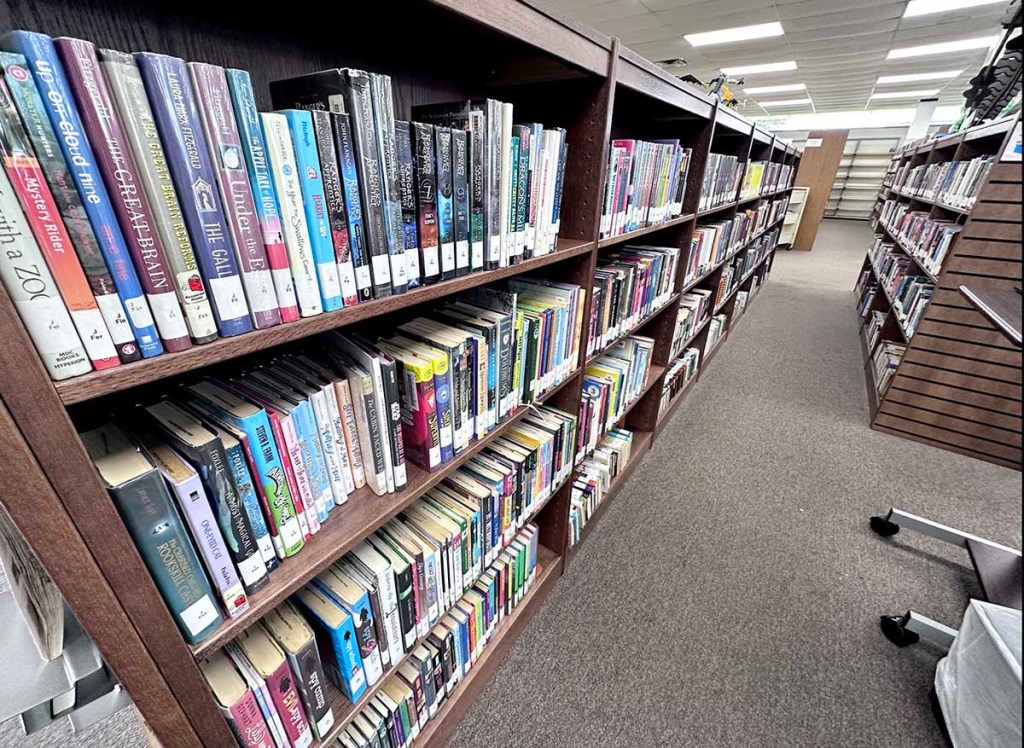Cullman County Library approves policy revisions
Published 12:15 am Saturday, August 17, 2024

- A selection of young adult books at the Cullman County Public Library in September.
The Cullman County Public Library Board has approved policy updates in line with new state mandated requirements local libraries will need to meet in order to receive supplemental funding.
The Alabama Public Library Service issued new policy recommendations in May, at the behest of Gov. Kay Ivey, which it said are intended to safeguard minors from encountering material containing “obscenity, sexually explicit or other material deemed inappropriate for children or youth.” The APLS does not define the terms but refers to Alabama’s statutory definitions which some Republican lawmakers are looking to strengthen.
The Alabama House of Representatives added amendments to the most recent Education Trust Fund which required the $6.6 million allocated to local libraries be contingent on local policies by enacted in accordance with the governor’s recommendations.
Many of the recommended policies had already been established by the Cullman County Library Board and the policy required only minor tweaks to be eligible to receive funding. The most notable change will now require parental consent for minors to receive a library card.
“Children under the age of 18 years are also entitled to a general membership, provided that a responsible party (parent or guardian) agrees to be responsible for any and all items borrowed on the membership card,” the policy now states.
Parental consent will also be required for minors to access the internet at the library and children younger than 12 will be required to be accompanied by a parent or guardian.
The Cullman County Library policy states the library will strive to provide a well-balanced collection through the use of a variety of material selection resources — including community recommendations — with increased diligence paid to materials for minors. It states some “controversial and unorthodox subjects,” may be contained within the collection and that inclusion does not imply library approval.
The policy states: “The board and staff recognize that some materials are controversial and that any given item may offend some patrons. Selections will not be made on the basis or merits of anticipated approval or disapproval, but solely on the merits of the work in relation to building the collection and to serving the interests of all the patrons.
“Library patrons with complaints about materials are able to submit a request for reconsideration form which will be forwarded to the director or assistant director. The director will have the authority to either remove the reconsidered materials or bring the request to the attention of the board during its next scheduled meeting.
“If submitted to the board, each member will conduct a thorough review of the material and determine whether to remove the material in question, relocate the material to a different section within the library or decline to take any action. If no action is taken, the board’s decision will stand “unless subsequent judicial decisions are rendered which prohibit housing the material in the library’s collections.”
The policy ensures challenged materials be judged strictly on content rather than outside pressures from individuals or organizations with partisan agendas.
“Since all political, religious and social opinions should be represented in a public library, no group or individual will be permitted to impose a partisan emphasis on the library’s collection. Frankness of language, a widespread and contemporary phenomenon, will never, in itself, be considered sufficient justification to remove or restrict library materials. The responsibility of the library is to serve all the community, not to promote — and above all, not to censor — any particular political, moral, philosophical, or religious conviction or opinion. It is not the purpose of the library to stimulate, nor to cater to anti-social, prurient, or immoral interests. But no one, least of all a free public library, has the right to restrict what another may not read, see, or hear,” the policy states.





